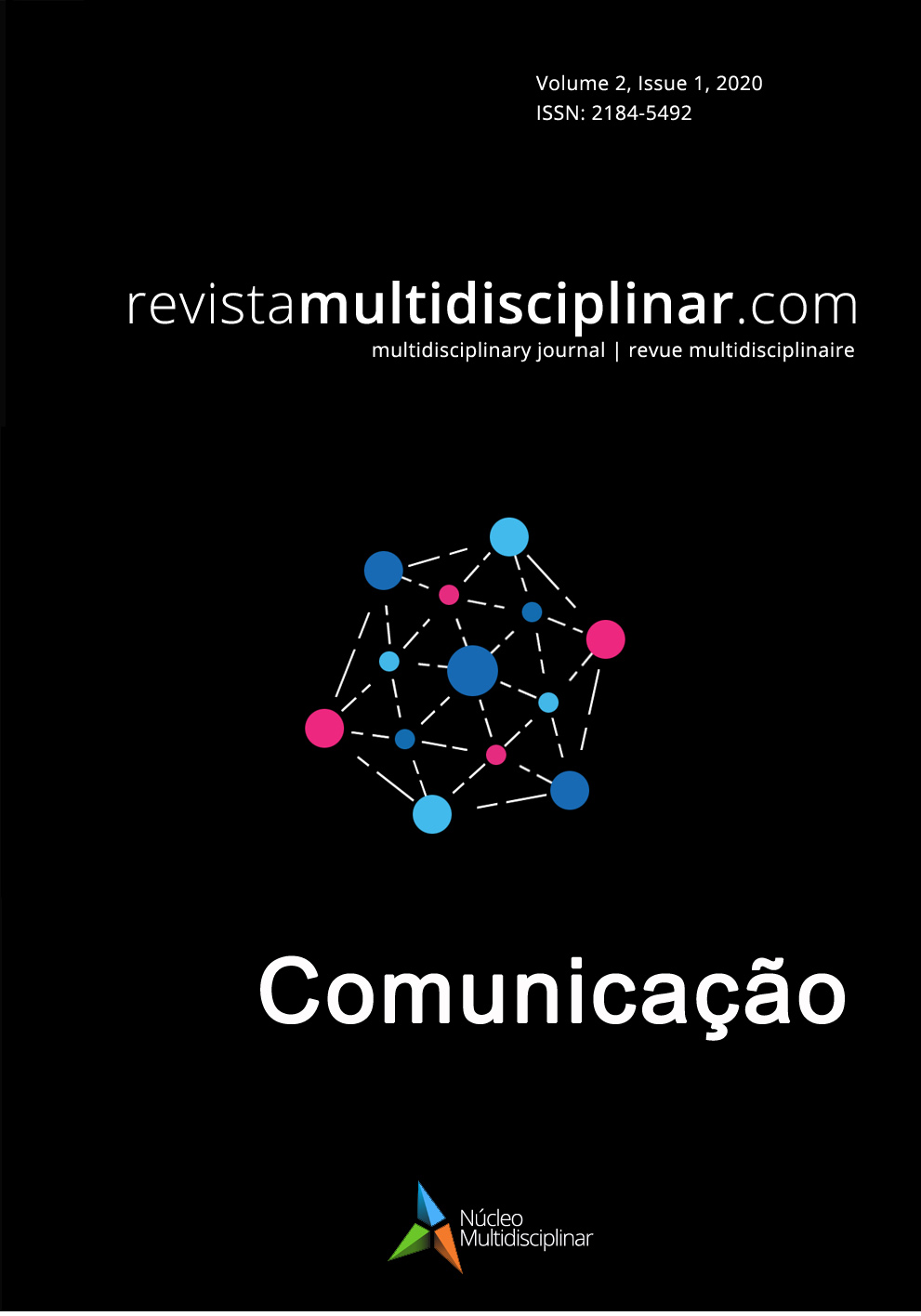Public Disengagement from Environmental Issues in Relation to Their Media Coverage
DOI:
https://doi.org/10.23882/MJ2029Palabras clave:
climate change, disengagement, environmental crisis, journalistic norms, media coverageResumen
The environmental crisis and climate change belong to a group of topics that appear not to be receiving as much media attention as some other issues, e.g. politics, economy, finance, and social and ethnic issues. Too often side-lined, even if environment gets some scope in news and documentaries, it is not always presented comprehensively enough. Although environmentalists and eco-philosophers are constantly – and ever more urgently – pointing to what they describe as an alarming situation at hand, it seems that most of the public has adopted a rather indifferent (disengaged) posture towards news about an imminent environmental crisis, climate change, global warming, the use of plastic etc. Public discourse and media discourse have been increasingly intertwined, so ordinary people acquire most information (not only) on environmental issues from the mass media: press, internet, radio and TV, particularly from newscast and documentaries. This paper will discuss possible relations between presentation of environmental issues in the media and attitudes held by their audience. We believe that the media must assume their part in creating public awareness of environmental issues. Our paper will be based on interdisciplinary, predominantly theoretical research involving the combination of media studies and media philosophy. We will discuss main features of this issue from the viewpoint of media-centric theories, since we maintain that effects of the mass media on empirical and social reality (including environmental issues) are beyond any doubt.
Citas
Angus, I. (2016). Facing the Anthropocene. Fossil Capitalism and the Crisis of the Earth System. New York: Monthly Review Press. ISBN 978-1-5836760-9-7.
Arnold, E. (2018). Doom and Gloom: The Role of the Media in Public Disengagement on Climate Change. [online]. [cit. 2019-07-09]. Harvard Kennedy School: Shorenstein Center on Media, Politics and Public Policy, 2018. Retrieved from: https://shorensteincenter.org/wp-content/uploads/2018/05/Media-and-Climate-Change-Elizabeth-Arnold.pdf.
Bacc. (2008). Assessment of Climate Change for the Baltic Sea Basin. Berlin – Heidelberg: Springer-Verlag, ISBN 978-3-540-72786-6.
Bandura, A., Barbanarelli, C., Caprara, G & Pastorelli, C. (1996). Mechanisms of Moral Disengagement in the Exercise of Moral Agency. Journal of Personality and Social Psychology, 71(2), pp. 364-374.
Bandura, A. (1994). Self-Efficacy. In: Ramachaudran, V. S. (Ed.): Encyclopedia of Human Behavior, 4, 71-81. Retrieved from: https://www.uky.edu/~eushe2/Bandura/Bandura1994EHB.pdf.
Boykoff, M. T. (2009). We Speak for the Trees: Media Reporting on the Environment. Annual Review of Environment and Resources, 34, 431-457. Retrieved from https://sciencepolicy.colorado.edu/admin/publication_files/resource-2788-2009.49.pdf.
Duroy, M. Q. (2005). The Determinants of Environmental Awareness and Behavior (Rensselaer Working Papers in Economics). Troy: Rensselaer Polytechnic Institute. Retrieved from: https://bit.ly/3hMyfJp
Eliáš, P. (2013). Ekologická gramotnosť a environmentálne povedomie [Ecological Literacy and Environmental Awareness]. In: Fedor, P. - Pavličková, K.: Stav a perspektívy environmentálneho vzdelávania [Situation and Prospects of Environmental Education]. Bratislava: Comenius University, Faculty of Natural Sciences. ISBN 978-80-223-3502-7, pp. 186-197.
Ethical Journalism Network. (2019). The 5 Principles of Ethical Journalism. Retrieved from: https://ethicaljournalismnetwork.org/who-we-are/5-principles-of-journalism.
Heald, S. (2017). Climate Silence, Moral Disengagement, and Self-Efficacy: How Albert Bandura’s Theories Inform Our Climate-Change Predicament. In Environment: Science and Policy for Sustainable Development, 59 (6), 4-16.
Henčová, K., Javorská, A., Sťahel, R., & Špirko, D. (2017). Kapitoly z dejín environmentálneho myslenia [Chapters from History of Environmental Thought]. Nitra: UKF. ISBN 978-80-558-1243-4.
Hughton, D. (2002). Introduction to Climate Change: Lecture Notes for Meteorologists. Geneva: WMO. ISBN 92-63-10926-5.
Iuzuka, M. (2000). Role of Environmental Awareness in Achieving Sustainable Development. Government of Japan. Retrieved from: https://bit.ly/3wfZPUc
Leiserowitz, A., Maibach, E., Roser-Renouf, C., Rosenthal, S., Cutler, M., & Kotcher, J. (2018). Climate Change in the American Mind: (Yale Program on Climate Change Communication). New Haven: Yale University and George Mason University.
Malhi, Y. (2017). The Concept of the Anthropocene. In: Annual Review of Environment and Resources, 42, 25.1-25.28.
Martyniak, K. (2014). Mass Media Coverage of Climate Change – Towards Public Engagement. Retrieved from: https://climate-exchange.org/2014/06/17/mass-media-coverage-of-climate-change-towards-public-engagement/.
Rahman, M. I. (2013). Climate Change: A Theoretical Review. In Interdisciplinary Description of Complex Systems, 11 (1), 1-13.
Roser-Renouf, C., Maibach, E., Leiserowitz, A., Feinberg, G., & Rosenthal, S. (2016). Faith, Morality and the Environment: Portraits of Global Warming's Six Americas. (Yale Program on Climate Change Communication). New Haven: Yale University and George Mason University.
Skačan, J. (2019). Environmental Issues and Climate Change in Media Discourse. In Z. Bučková, L. Rusňáková, M. Solík (Eds.) Megatrends and Media: Digital Universe (pp.242-256). ISBN 978-80-572-0015-4
Sklair, L. (2018). The Anthropocene Media Project. Mass Media on Human Impacts on the Earth System. Visions for Sustainability, 10. Retrieved from: http://www.ojs.unito.it/index.php/visions/article/view/2740.
Sťahel, R. (2019). Pojem krízy v environmentálnom myslení [The Term of Crisis in Environmental Thought]. Bratislava: Iris. ISBN 978-80-8200-038-5.
Woods, R., Coen, S., & Fernández, A. (2018). Moral (dis)engagement with anthropogenic climate change in online comments on newspaper articles. Journal of Community & Applied Social Psychology, 28, 244-257. doi: 10.1002/casp.2355
Zerubavel, E. (2006). The Elephant in the Room. Oxford: Oxford University Press. ISBN-13: 978-0-19-518717-5.
Descargas
Publicado
Cómo citar
Número
Sección
Licencia
Derechos de autor 2020 Juraj Skačan

Esta obra está bajo una licencia internacional Creative Commons Atribución-NoComercial 4.0.









